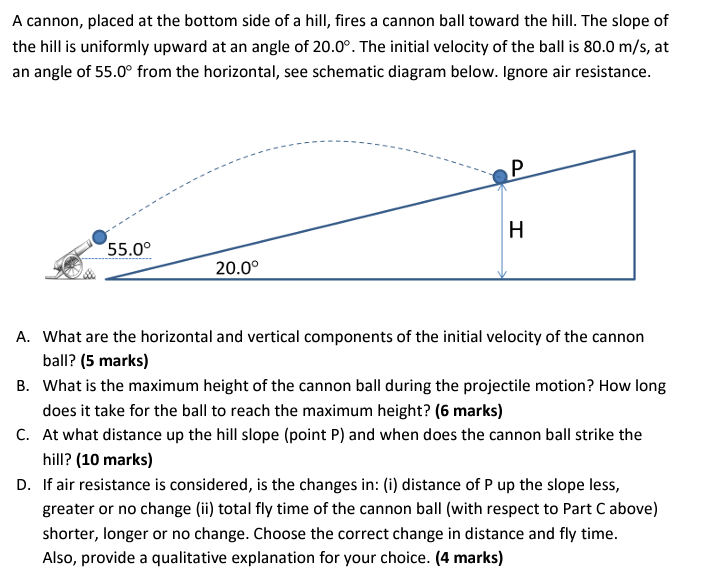Answered step by step
Verified Expert Solution
Question
1 Approved Answer
A cannon, placed at the bottom side of a hill, fires a cannon ball toward the hill. The slope of the hill is uniformly

A cannon, placed at the bottom side of a hill, fires a cannon ball toward the hill. The slope of the hill is uniformly upward at an angle of 20.0. The initial velocity of the ball is 80.0 m/s, at an angle of 55.0 from the horizontal, see schematic diagram below. Ignore air resistance. 55.0 20.0 P H A. What are the horizontal and vertical components of the initial velocity of the cannon ball? (5 marks) B. What is the maximum height of the cannon ball during the projectile motion? How long does it take for the ball to reach the maximum height? (6 marks) C. At what distance up the hill slope (point P) and when does the cannon ball strike the hill? (10 marks) D. If air resistance is considered, is the changes in: (i) distance of P up the slope less, greater or no change (ii) total fly time of the cannon ball (with respect to Part C above) shorter, longer or no change. Choose the correct change in distance and fly time. Also, provide a qualitative explanation for your choice. (4 marks)
Step by Step Solution
There are 3 Steps involved in it
Step: 1
A Horizontal and vertical components of the initial velocity Horizontal component80 ms cos55 423 ms Vertical component 80 ms sin55 612 ms B Maximum he...
Get Instant Access to Expert-Tailored Solutions
See step-by-step solutions with expert insights and AI powered tools for academic success
Step: 2

Step: 3

Ace Your Homework with AI
Get the answers you need in no time with our AI-driven, step-by-step assistance
Get Started


